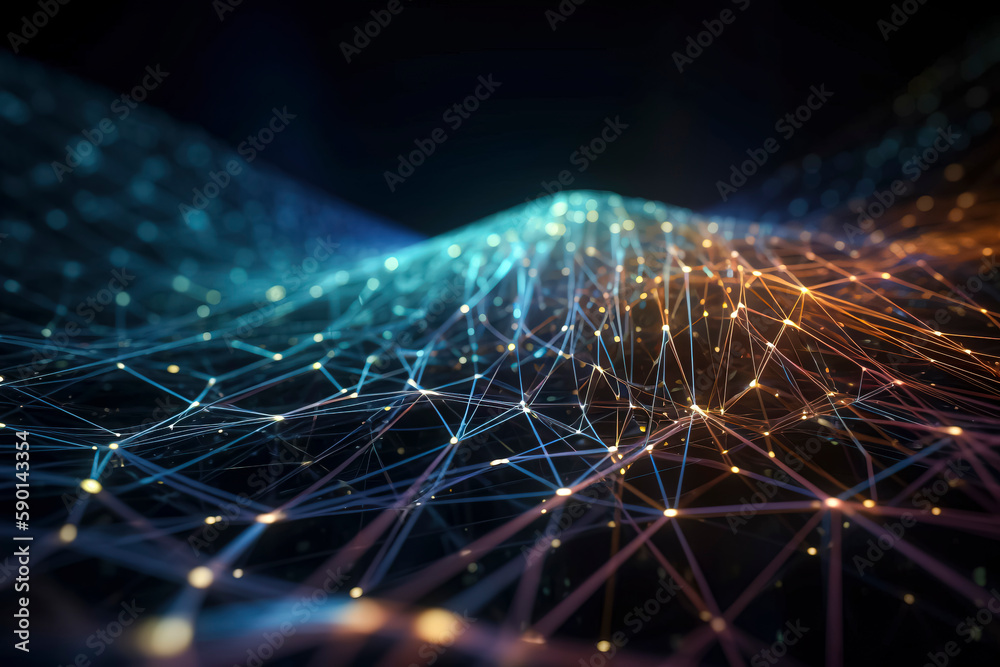
“Pixel Pulse: Exploring the Frontiers of Digital Technology
Related Articles Pixel Pulse: Exploring the Frontiers of Digital Technology
- Neurosymbolic AI: The Game-Changer In Machine Learning And Reasoning
- Tech Current: Navigating The Rapids Of Innovation
- IoT (Internet Of Things): Building A Connected World
- Wearable Technology: Bringing Innovation To Health And Fitness
- How AI Is Accelerating Scientific Discovery At An Unprecedented Scale
Introduction
Discover everything you need to know about Pixel Pulse: Exploring the Frontiers of Digital Technology
Pixel Pulse: Exploring the Frontiers of Digital Technology
We live in a world saturated with pixels. From the vibrant displays of our smartphones to the intricate details of medical imaging, the digital realm shapes our experiences in profound ways. This "Pixel Pulse," the relentless beat of technological advancement, is reshaping industries, economies, and even our very understanding of reality. This article delves into the cutting edge of digital technology, exploring the innovations driving this pulse and their implications for our future. Understanding this rapid evolution isn’t merely a matter of intellectual curiosity; it’s crucial for navigating the complexities of the modern world and preparing for the challenges and opportunities that lie ahead. The ability to grasp the underlying principles and potential impact of these advancements is essential for individuals, businesses, and policymakers alike. This exploration will examine key areas driving this technological revolution, highlighting both the immense potential and the critical considerations that must accompany such rapid progress.

The Rise of Artificial Intelligence and Machine Learning
Artificial intelligence (AI) and machine learning (ML) are arguably the most transformative forces within the Pixel Pulse. AI, in its broadest sense, refers to the ability of machines to mimic human intelligence. ML, a subset of AI, focuses on enabling systems to learn from data without explicit programming. The applications are vast and rapidly expanding. From self-driving cars relying on complex algorithms to process sensor data, to sophisticated medical diagnostic tools analyzing images with unprecedented accuracy, AI and ML are revolutionizing numerous sectors.
For example, Google’s DeepMind has developed AlphaFold, an AI system that can predict the 3D structure of proteins with remarkable accuracy. This breakthrough has significant implications for drug discovery and development, accelerating the process of creating new treatments for diseases. Similarly, in the financial sector, AI-powered algorithms are used for fraud detection, risk assessment, and algorithmic trading, enhancing efficiency and reducing human error.
However, the ethical implications of AI are equally significant. Concerns surrounding bias in algorithms, job displacement due to automation, and the potential for misuse of AI technologies require careful consideration. Developing robust ethical frameworks and regulations is crucial to ensure responsible innovation and prevent unintended consequences. Individuals can prepare for this future by developing skills in data analysis, AI ethics, and critical thinking, enabling them to navigate the evolving landscape effectively.
The Metaverse and the Immersive Experience
The Metaverse, a persistent, shared, 3D virtual world, represents another significant frontier within the Pixel Pulse. While still in its nascent stages, the Metaverse promises to revolutionize how we interact with digital information and each other. From virtual meetings and collaborative workspaces to immersive gaming experiences and virtual tourism, the possibilities are seemingly limitless.
Companies like Meta (formerly Facebook) are investing heavily in developing the underlying technologies, including virtual reality (VR) and augmented reality (AR) headsets, haptic feedback suits, and advanced rendering techniques. The development of high-fidelity graphics, realistic physics engines, and intuitive user interfaces are critical for creating truly immersive and engaging experiences.
The Metaverse also presents significant challenges. Concerns about data privacy, digital identity, and the potential for creating echo chambers and exacerbating social inequalities need careful attention. Furthermore, the accessibility and affordability of the necessary hardware and software remain significant barriers to widespread adoption. The future of the Metaverse will depend on addressing these challenges and ensuring equitable access to its benefits.
Quantum Computing: Redefining Computational Power
Quantum computing represents a paradigm shift in computational power. Unlike classical computers that store information as bits representing 0 or 1, quantum computers utilize qubits, which can exist in a superposition of both 0 and 1 simultaneously. This allows for the processing of exponentially more complex calculations than classical computers, potentially unlocking solutions to problems currently considered intractable.
Applications of quantum computing are vast and span various fields. In drug discovery, quantum computers could simulate molecular interactions with unprecedented accuracy, accelerating the development of new pharmaceuticals. In materials science, they could design new materials with superior properties. In finance, they could optimize investment portfolios and manage risk more effectively.
However, quantum computing is still in its early stages of development. Building and maintaining stable qubits is a significant technological challenge. The development of quantum algorithms and software is also a crucial area of research. While widespread adoption is still years away, the potential of quantum computing is undeniable, and investment in research and development is crucial for realizing its transformative potential.
The Internet of Things (IoT) and the Connected World
The Internet of Things (IoT) refers to the network of physical objects embedded with sensors, software, and other technologies that enable these objects to collect and exchange data. From smart homes and wearables to industrial sensors and connected vehicles, the IoT is rapidly expanding the scope of digital connectivity.
The IoT is generating massive amounts of data, creating opportunities for data analytics and machine learning. This data can be used to optimize processes, improve efficiency, and gain valuable insights into various aspects of our lives and industries. For example, smart agriculture uses sensors to monitor soil conditions, weather patterns, and crop health, allowing farmers to optimize irrigation and fertilization, leading to increased yields and reduced resource consumption.
However, the IoT also raises security and privacy concerns. The interconnected nature of IoT devices makes them vulnerable to cyberattacks, and the vast amount of data collected raises concerns about data privacy and potential misuse. Robust security measures and data protection regulations are crucial for ensuring the responsible development and deployment of IoT technologies.
Blockchain Technology and Decentralized Systems
Blockchain technology, the underlying technology of cryptocurrencies like Bitcoin, is gaining traction beyond the financial sector. Its decentralized and transparent nature makes it suitable for a variety of applications, including secure data management, supply chain tracking, and digital identity verification.
Blockchain’s immutability – the inability to alter past transactions – makes it ideal for creating tamper-proof records. This can be used to improve transparency and accountability in various industries, such as healthcare, where patient records can be securely stored and shared. In supply chain management, blockchain can track products from origin to consumer, ensuring authenticity and preventing counterfeiting.

However, scalability and energy consumption remain significant challenges for blockchain technology. The development of more energy-efficient consensus mechanisms and scaling solutions is crucial for its wider adoption. Furthermore, the regulatory landscape surrounding blockchain technology is still evolving, and clear guidelines are needed to ensure responsible innovation.
Conclusion
The Pixel Pulse, the relentless advancement of digital technology, is reshaping our world in profound ways. From AI and the Metaverse to quantum computing and blockchain, these innovations are driving transformative change across industries and impacting our daily lives. While the potential benefits are immense, it’s crucial to address the ethical, social, and environmental implications of these advancements. The future will require collaboration between technologists, policymakers, and society as a whole to ensure that these powerful tools are used responsibly and equitably, maximizing their benefits while mitigating their risks. The question we must ask ourselves is not just "what can we build?", but "what kind of future do we want to create?" The answers will shape the rhythm of the Pixel Pulse for generations to come.
Conclusion
Thus, we hope this article has provided valuable insight into Pixel Pulse: Exploring the Frontiers of Digital Technology. We hope you found this article informative and useful. See you in our next article!






